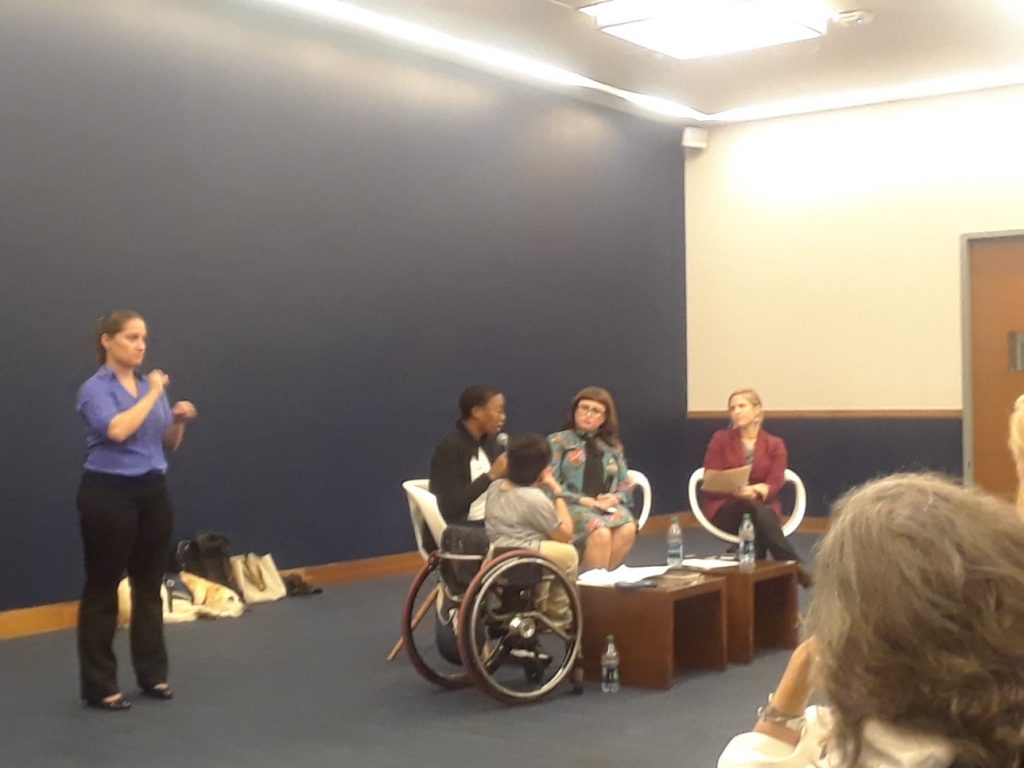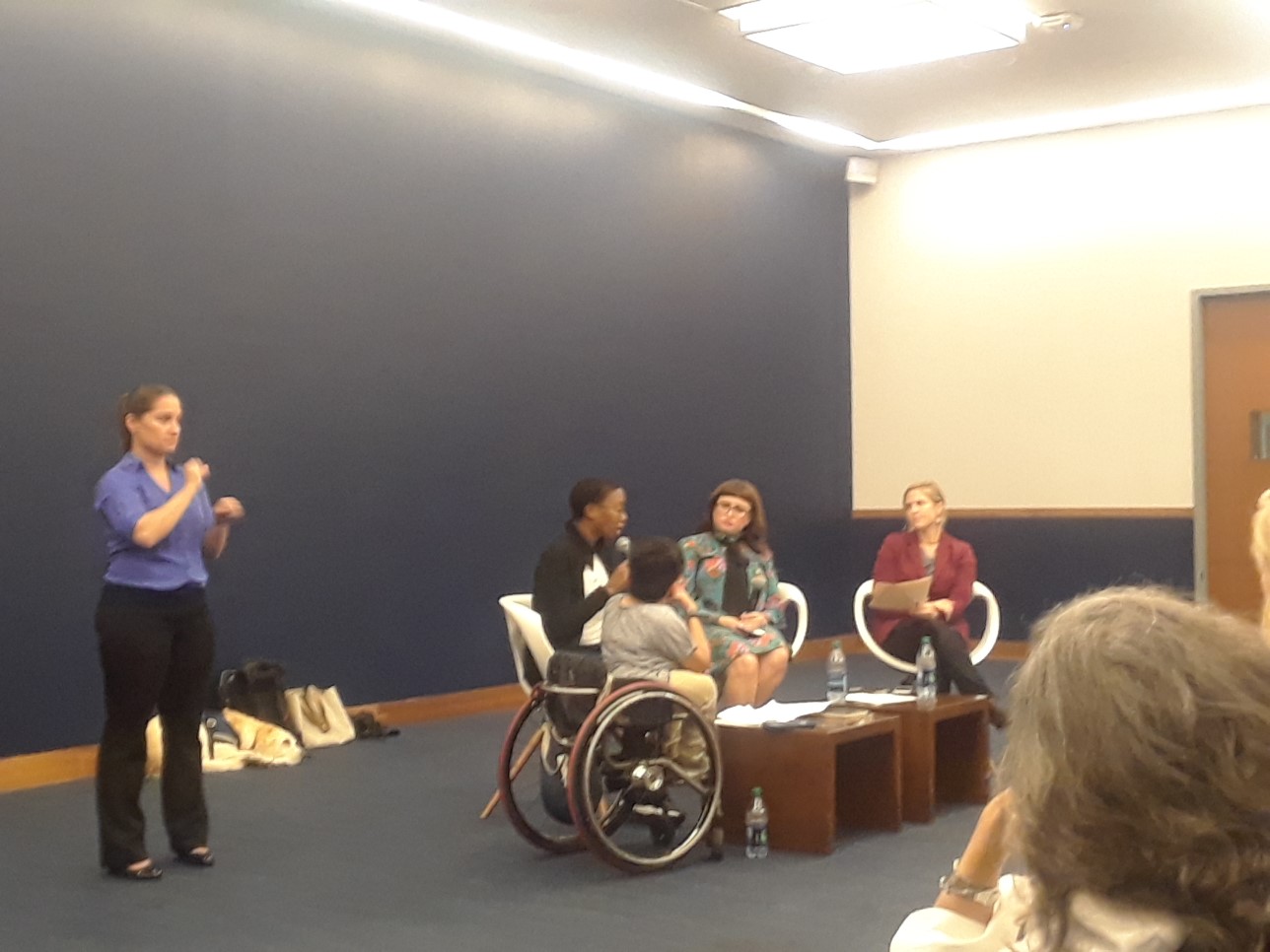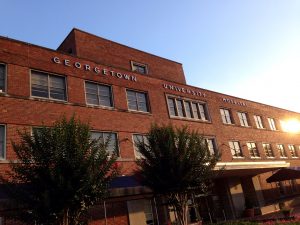A panel featuring disability advocates met in the Healey Family Student Center Social Room on Sept. 17 to discuss disability and immigration policy in the United States. It was moderated by STIA professor Emily Mendenhall and featured three defenders for disability rights, Katherine Perez, Mia Ives-Rublee and Talila (TL) Lewis.
The three spoke about their personal experiences with legislation and actions associated with disability and immigration. Throughout their discussion, the panelists referred to these experiences and imparted their knowledge on the audience members. One of the key components discussed was connecting disability throughout history

The panel for the Disability and Immigration Policy in the Zero Tolerance Era
“Disability is historically contingent. Once you start looking at history, you find disability everywhere,” Perez, the co-founder of The National Coalition for Latinxs with Disabilities, said.
The panelists also hoped to tackle pervading challenges in the disability community, including ableism. Lewis, the co-founder and director of Helping Educate to Advance the Rights of the Deaf (HEARD), defined ableism as “a systemic oppression that is rooted in the valuation of bodies and minds. It is based on the myth of normalcy, compliance, and your ability to produce.”
The panelists talked about historical and modern laws that affect the disabled and immigrant community, especially where they intersect, and the pressure that has been placed on attorneys to advocate for the people who need it most.
Special attention in the discussion was given to the re-emergence of the term “public charge.”
According to Ives-Rublee, the founder, organizer, and coordinator of The Women’s March on Washington’s Disability Caucus, a public charge is a person viewed as “a primary dependent on care at government expense.”
Soon to be implemented by the Trump administration, status as a public charge could preclude immigrants from entering the United States, creating a link between disability to immigration.
The event was part of a series of discussions hosted by the department of disability studies, led by Libbie Rifkin, who called the event a success.
“I was hoping it would be a good entry point for students of different levels to the disability studies experience and acclimate them to a different approach,” Rifkin said. “I was very pleased how TL introduced us to the principles of disability justice. To the extent that people are interested, I think it went well.”
Rifkin was not the only member of the audience who felt like the panel was rewarding. “I found the panel interesting and opportune for this time,” Lizzie Porterfield (COL ’19) said.
“I think it is very important to bring all the students in disability studies together to hear these speakers,” Rifkin said. “It’s a way to connect theories and practice by bringing in people that are doing work on the ground,”






